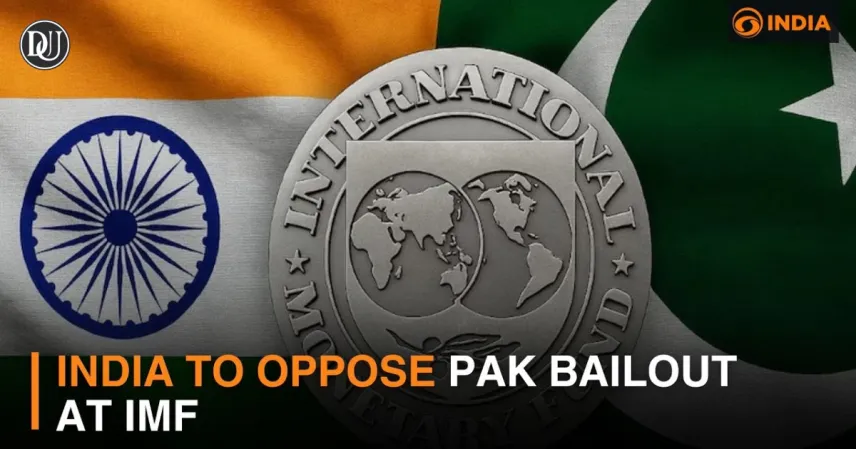In a dramatic turn of events at the International Monetary Fund (IMF) meeting on May 9, 2025, India made its voice heard. It opposed a proposal that could grant Pakistan a fresh loan of $2.3 billion, choosing to abstain from voting but firmly making its position clear. This decision came on the back of serious concerns that these funds could be used for purposes that would only fuel more instability in the region.
For those who have closely followed the tumultuous history between India and Pakistan, this stance from India was more than just a political maneuver—it was a stand for justice, a call for accountability, and a plea to the world to take a harder look at how funds are being used to further peace, not perpetuate violence.
A Heartbreaking Tragedy: The Catalyst for Change
It’s impossible to ignore the painful backdrop of this decision. Just weeks before the IMF meeting, on April 22, 2025, the Indian region of Pahalgam in Kashmir was rocked by a brutal terrorist attack that claimed the lives of 26 innocent civilians. The attack, attributed to Pakistan-based terrorist groups, shook the very core of India’s collective conscience. The loss was not just of lives, but of the safety and security that so many take for granted.
The emotional toll of such an attack cannot be overstated. Families grieved, communities were torn apart, and the question on everyone’s mind was, “Why does this violence continue?” For India, it wasn’t just about a single attack; it was a painful reminder of the constant threat posed by terrorism that many in the country believe is being sponsored across the border.
The Growing Divide Between India and Pakistan
India’s response to this tragedy was swift and decisive. The Indian government made it clear that they could no longer turn a blind eye to Pakistan’s actions, accusing its neighbor of harboring terrorists and allowing them to plan attacks that affect innocent lives. In the wake of the attack, India took immediate steps to escalate tensions. The two nations, which have long had a rocky relationship, saw the suspension of a critical river-sharing treaty. Even the skies above were closed to each other’s planes, a clear signal that the ties between the countries had reached a breaking point.
It is in this atmosphere of heightened tension and heartbreak that India’s move at the IMF must be understood. This wasn’t just about opposing a loan—it was about sending a message to the international community: It’s time to hold Pakistan accountable for actions that have long been a source of pain for India.
India’s Call for Accountability at the IMF
At the IMF meeting, India didn’t just oppose the loan. It made it known why it was doing so. The Indian government voiced concerns that fresh loans to Pakistan could potentially be misused, particularly for military or terrorist-related activities. This wasn’t just about political posturing; it was about ensuring that international financial institutions like the IMF don’t inadvertently fuel conflict by supporting countries that may use resources for harmful purposes.
India’s abstention from voting was a calculated move—it wasn’t a full-out rejection, but a way of signaling that India was watching closely. By standing back but speaking up, India hoped to draw global attention to the risk that these funds could perpetuate violence and instability. The message was clear: financial aid should never come at the cost of global peace and security.
The Bigger Picture: Should Financial Aid Be Conditional?
India’s stand raises a critical question for the international community: Should financial aid to countries with a history of sponsoring terrorism or violating international norms come with stricter conditions? The IMF, as a major financial institution, has a responsibility not only to ensure economic stability but also to make sure that the funds it disburses are not used for purposes that could harm other nations or destabilize entire regions.
This is where moral considerations need to play a role. Lending money to countries with ongoing conflicts or questionable practices requires a much more thoughtful and thorough review of how those funds will be used. Will they go toward improving the lives of ordinary people, or will they fund activities that endanger lives and promote violence? In this case, India’s request was simple: ensure that the money is being spent on peace and development, not war and terror.
The World’s Responsibility: A Call for Unity
What India is asking for is not just a change in how loans are given, but a broader call for responsibility on the global stage. The international community cannot afford to turn a blind eye to the actions of nations that perpetuate conflict. Every dollar lent by global institutions like the IMF carries weight—and it is the responsibility of these institutions to ensure that the money is not misused.
For India, this isn’t just about politics or diplomacy. It’s about protecting its people, ensuring their safety, and making sure that no more innocent lives are lost to senseless violence. It’s about looking beyond borders and asking the world to unite in the fight for a peaceful, stable world.
Looking Forward: Will Change Come?
As the IMF continues to deliberate on Pakistan’s loan request, the question remains: Will global institutions take this opportunity to reevaluate their practices? Will they consider the wider implications of their financial decisions? India’s bold stand may have been just the beginning of a much-needed shift in how the world thinks about international loans and aid.
In the end, this isn’t just about one country’s stance—it’s about ensuring that financial support goes toward fostering peace, stability, and prosperity. It’s a call for a world that prioritizes human life and safety above all else. As we look to the future, the hope is that the global community will come together, rise above divisions, and work toward creating a world where no more lives are lost to senseless violence and terror.










